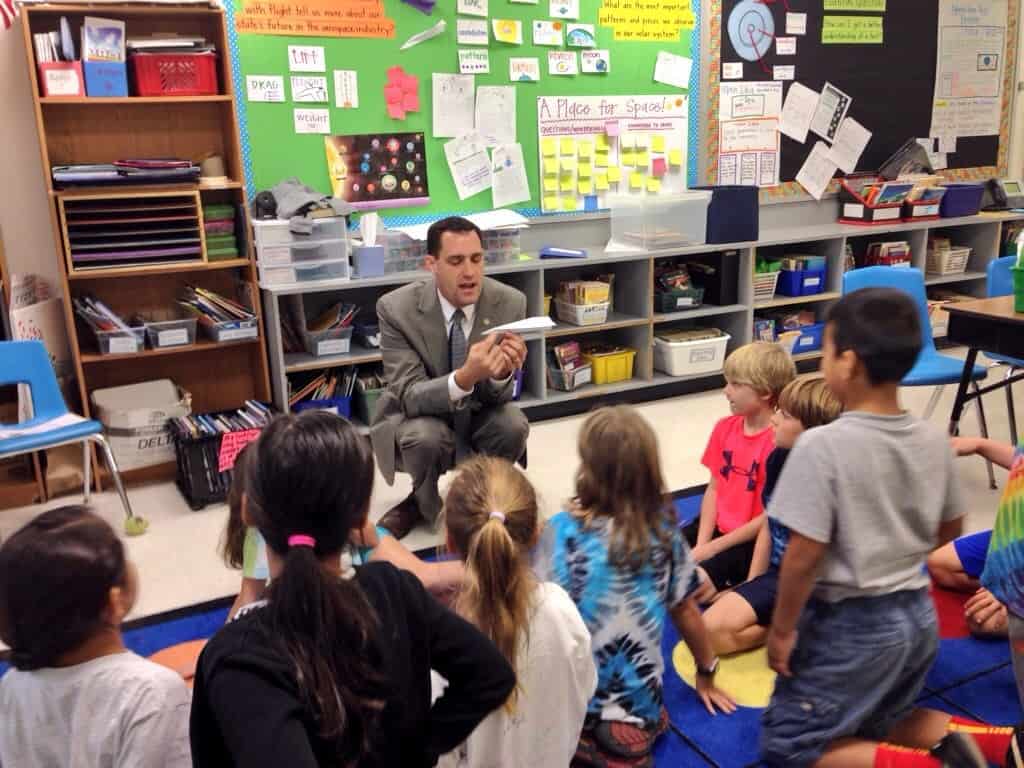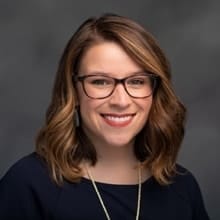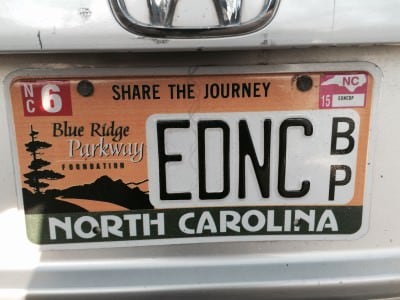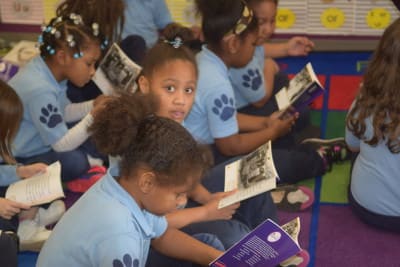

Last fall at my last Kenan Fellows Professional Institute, all we discussed was educational policy and advocacy.
I really took what we learned to heart. There was a session about learning about your legislators and building relationships with them, and I jumped on that STAT. I tweeted at my school district’s representatives and was, within the hour, drafting an email to them both about coming to visit my classroom.
Within the hour.
Needless to say, I definitely didn’t expect a quick response.
But within weeks, I had one of the legislators come to my class, and it was so great.
He came in, interacted with the kids, and asked me some questions while the kids were working independently. He inquired about an online bilingual reading program I had my kids using, as well as my interactive word wall for my kids to add sticky notes with questions about space. Our email correspondence said he would stay for an hour, but he stayed for a little over two.
I was so happy to have him in my classroom — he saw some incredible learning happening. We bridged English space and flight vocabulary into Spanish, and y’all, my kids came up with 81 words about space and flight for this bridge.
Eighty-one.
These brilliant babies shot out 81 words at me.
I explicitly taught about ten words with hand motions and pictorial representation, and these brilliant babies shot out 81 words at me. UNREAL (they remember EVERYTHING YOU SAY TO THEM).
The representative also saw students creating diagrams to match a text they read the day before (we’re learning how to use nonfiction text features as supporting details to a main idea and were focusing on diagrams that day) and work in collaborative groups to compare and analyze the similarities and differences between airplanes and rockets (which ends up helping them with the completion of their end of unit culminating task).
As he was walking around my room talking with my students, all I could think was, “There’s no way this could get any better!”
Well, if you can believe it, it did.
The kids were pouring out the door for recess after compliment circle, and he asked me if we could debrief what we did in my classroom those last two hours.
He asked me to debrief. On the spot. On his time.
Taken aback, I answered, “Of course!” (I promise my voice wasn’t like three octaves higher when I replied) and we sat down for half an hour before I had a parent-teacher conference come in.
Y’all, this man asked me some of the best questions I’ve ever had an observer ask me about my classroom. Granted, this representative has some education background and context (his wife is a teacher and he used to work for my school district on the equity team). He inquired about specific students and gave suggestions based on his equity work with students in our district. He told me that he loved the high level of vocabulary in the classroom, that he thought the relationship-building practices and management I use are both strong, and he was supportive of the community pieces we have in effect for this unit. He shed light on ideas for keeping my students accountable for their learning that I never considered before, and I plan on implementing those in my classroom this quarter. He even asked me about my Kenan Fellowship and encouraged me to look into other programs like that for next year to better my practice.
As he left, I handed him a thank you card (because 1 – that’s classy, and 2 – I’m sincerely grateful for his time and support). Within the card I offered my contact information and my desire to meet with him again to discuss bilingual education and policy, and anything else education-related if he ever needed input on something. I’ll send a follow up email at the end of the week to continue to further cultivate the relationship.
Friends, our policy window is OPEN, and it’s open now.
I hope this motivates you to reach out to your state representatives in the House or Senate (or both!) — show them your classroom, what you do, how your kids learn.
This is a partnership; no one can do this alone and fix the problems in our educational system singlehandedly.
We need lots of hands in the pot for this one, and what better way to get the ball rolling than with inviting the people making the laws into our classrooms so they can see those laws played out!
I feel fairly confident in saying that lawmakers don’t necessarily know the extent of issues we educators have. We educators know that larger class sizes are a problem, but a lawmaker who hasn’t stepped into a classroom since (s)he was in school doesn’t understand what that looks like from the front of the classroom. If you invite that representative into your classroom, (s)he will learn very quickly that a first grade class size of 30 is the most absurd thing EVER (because honestly, you can only tie one kid’s shoe at a time while your TA monitors bathroom breaks…if you even have a TA..which is a completely different issue!).
It sounds scary and intimidating to contact lawmakers, but y’all, it is SO worth it. Put the fear away and understand that you’re doing this not just for your kids and their education, but for YOURSELF. You are contacting that lawmaker — that representative, that senator — so that you can be an active citizen and stand up for something in which you believe (at least that’s how I explained it to my kids — with hand motions from our last government unit and all).
Research and reach out.
Be encouraged; the policy window is wide open and ready for you to climb through!




